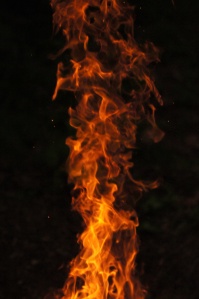In the first seven chapters of Leviticus, yes Leviticus, the people of the covenant are provided with a set of laws regarding ritual sacrifices. These cover the purposes of the various types of sacrifice, what is to be sacrificed, and the procedures for each sacrifice.
Throughout these chapters, one of the most consistent instructions is to set aside the blood, fat, and entrails of the animals being sacrificed. The people of the covenant are forbidden to eat the blood and/or fat of any animal, with the consequence of disobedience being separation from the community.
A reason for forbidding the eating of blood is explained in Leviticus 17:10-16, namely that the life of a creature is in its blood. Note that this command is repeated throughout the Torah, and also is stated in Acts 15.
Entrails are to be set aside but are not forbidden to be eaten. When entrails are mentioned in Leviticus, they are described as being fatty and covered in fat, and fat is forbidden.
As to fat itself, even the priests are not allowed to eat the fat of the animals they sacrifice as part of their portion. Leviticus 3:16 even states explicitly, “All fat is the LORD’s.”
Here is the question: Why are the people forbidden to eat fat?
Here is my answer: I don’t know.
Nothing in the text provides an obvious answer. Even in the wider context of the Bible as a whole, no clear explanation is given.
Nevertheless, much speculation on the question is available for a premium price at your local bookstore.
Or, for free, you could read some speculation here, here, here, and………….there.


